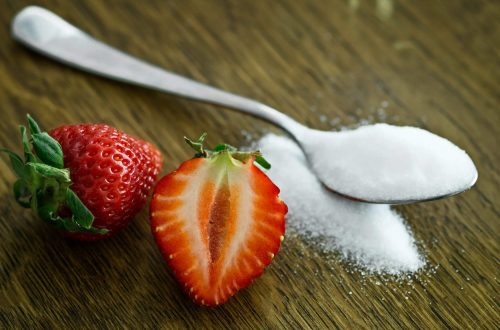Is Butter Good for Weight Loss? Debunking the Myth and Embracing the Facts
When it comes to weight loss and maintaining a healthy diet, there is a plethora of conflicting information out there. Among the debated topics is whether butter, a beloved and often-controversial staple in many cuisines, can be part of a weight loss journey. Some experts and diets claim butter is detrimental to weight loss efforts due to its high-fat content, while others argue that it can be a beneficial addition when consumed in moderation. In this blog post, we will explore the science behind butter, and its potential impact on weight loss, and provide evidence-based insights to help you make informed decisions about incorporating butter into your diet.

Understanding Butter:
Before diving into its impact on weight loss, let’s first understand what butter is and how it is made. Butter is a dairy product made by churning cream or milk to separate the fat from the liquid (buttermilk). The solid portion that remains is butter, which typically consists of around 80% fat, 15% water, and 5% milk solids.
Nutritional Composition of Butter:
To understand whether butter can fit into a weight loss plan, let’s take a closer look at its nutritional composition:
- High in calories: Butter is calorie-dense, containing approximately 102 calories per tablespoon.
- Saturated fats: It is rich in saturated fats, which have been associated with an increased risk of heart disease and obesity.
- Vitamins and minerals: Butter contains essential vitamins like A, D, E, and K2, as well as trace minerals like selenium.
The Butter-Weight Loss Connection:
Now that we have an overview of butter’s nutritional profile, let’s examine the connection between butter consumption and weight loss.
The Case Against Butter:
- High-calorie content: Butter is energy-dense, which means it can contribute significantly to your daily calorie intake. Consuming excess calories without burning them off can lead to weight gain.
- Saturated fats: Butter is a significant source of saturated fats, which have been associated with an increased risk of heart disease and obesity. Diets high in saturated fats are generally discouraged for those looking to lose weight.
- Lack of essential nutrients: While butter does contain some vitamins and minerals, it is not as nutrient-dense as other food options like fruits, vegetables, and whole grains. These nutrient-dense foods often offer more satiety per calorie, helping you feel fuller and potentially reducing overall caloric intake.
The Case for Butter:
- Satiety and satisfaction: Butter can add flavor and richness to meals, making them more satisfying. Including moderate amounts of butter in your diet may help prevent feelings of deprivation often associated with weight loss regimens.
- Healthy fatty acids: Despite being high in saturated fats, butter also contains healthier fatty acids like monounsaturated fats and omega-3 fatty acids, which can have positive effects on heart health and metabolism.
- Fat-soluble vitamins: Butter is a good source of fat-soluble vitamins (A, D, E, and K2). These vitamins play essential roles in various bodily functions, including immune support, bone health, and cell maintenance.
The Moderation Approach:
The key to determining whether butter can be part of a weight loss plan lies in moderation. Completely eliminating butter or any other food from your diet is often not sustainable and may lead to feelings of deprivation, making it harder to stick to your weight loss goals. Instead, consider the following tips:
- Portion control: Be mindful of the amount of butter you use. Instead of slathering it on, use a smaller quantity to add flavor.
- Quality over quantity: Choose high-quality, organic butter when possible. Grass-fed butter, in particular, contains higher levels of beneficial nutrients like omega-3 fatty acids.
- Balanced diet: Incorporate butter into a well-balanced diet that includes a variety of nutrient-dense foods like vegetables, fruits, whole grains, lean proteins, and healthy fats.
- Mindful eating: Pay attention to hunger and fullness cues. Mindful eating can help you enjoy your food more fully and prevent overeating.
Final Verdict:
While butter is not inherently “good” or “bad” for weight loss, it can be part of a balanced diet when consumed in moderation. It’s essential to consider your overall diet, lifestyle, and individual health needs when deciding whether to include butter in your weight loss journey.
Remember that weight loss is a complex process influenced by various factors, including calorie intake, physical activity, sleep, stress, and overall dietary patterns. If you have specific health concerns or weight loss goals, it is always best to consult with a registered dietitian or healthcare professional who can provide personalized advice and guidance.
Ultimately, embracing a sustainable and enjoyable approach to eating is crucial for long-term success. Be mindful of your choices, listen to your body, and make informed decisions that align with your health and wellness objectives. With a balanced diet and a healthy lifestyle, you can achieve your weight loss goals while still savoring the occasional buttery delight.
Subscribe to Newsletter





